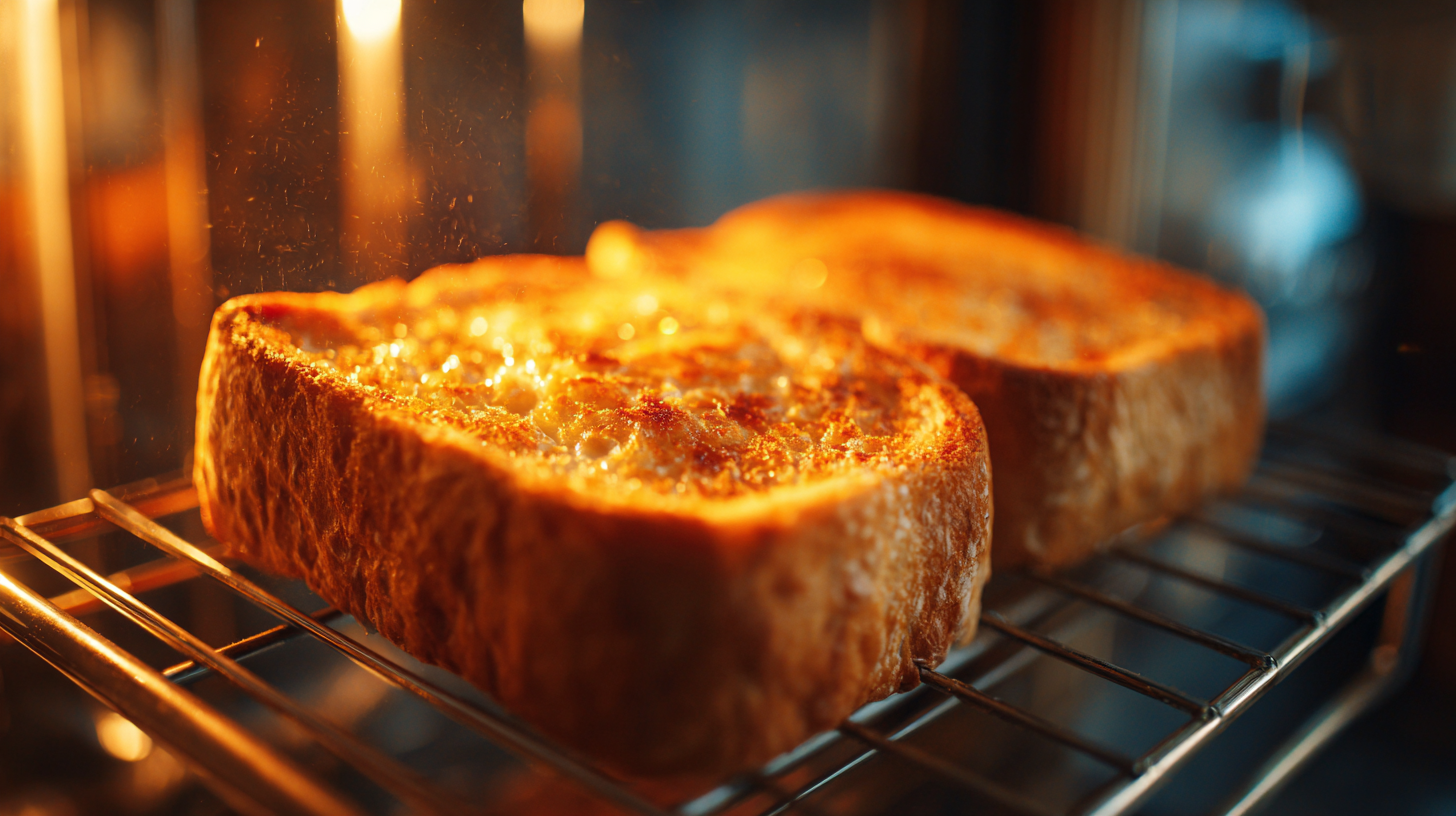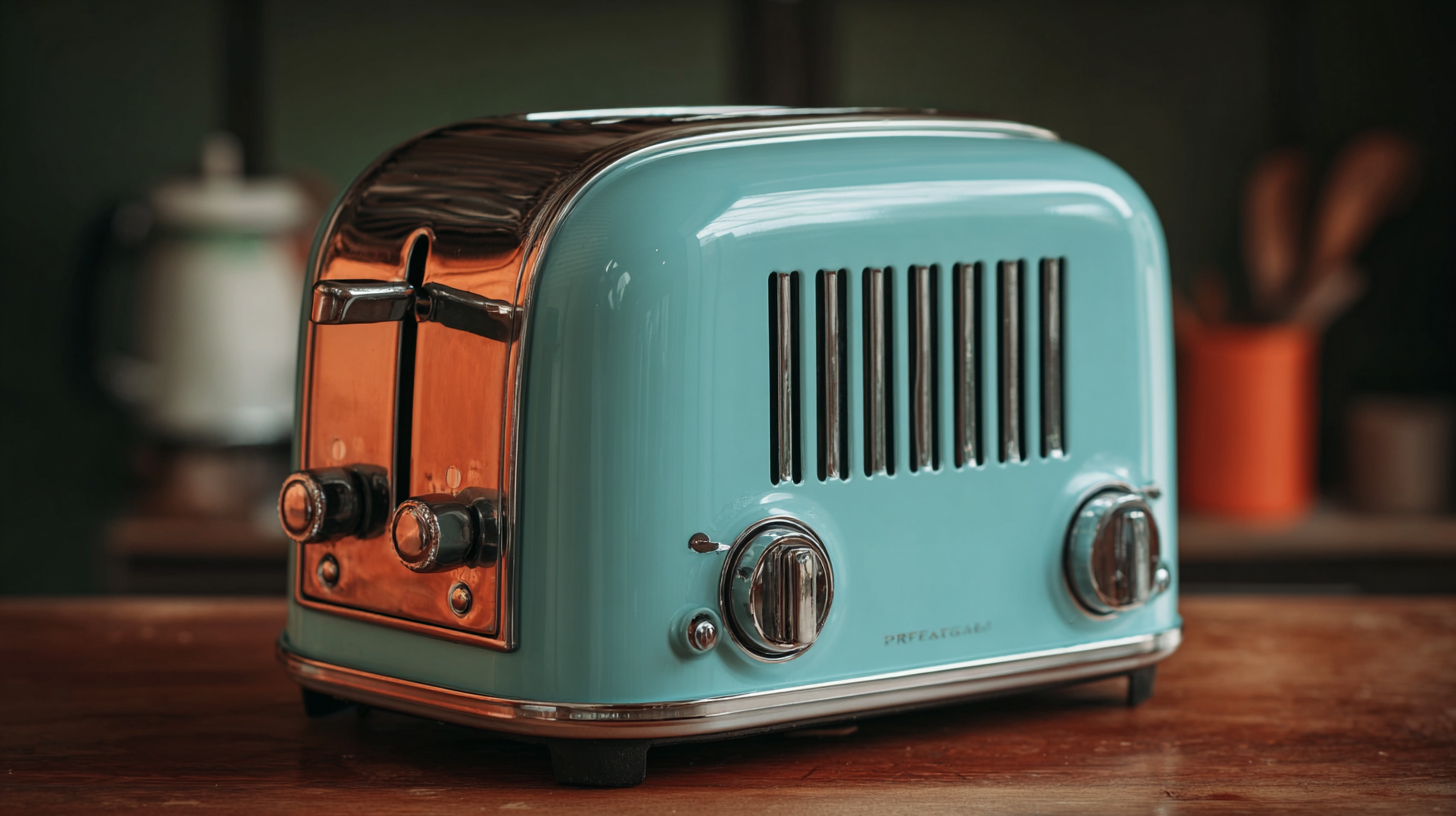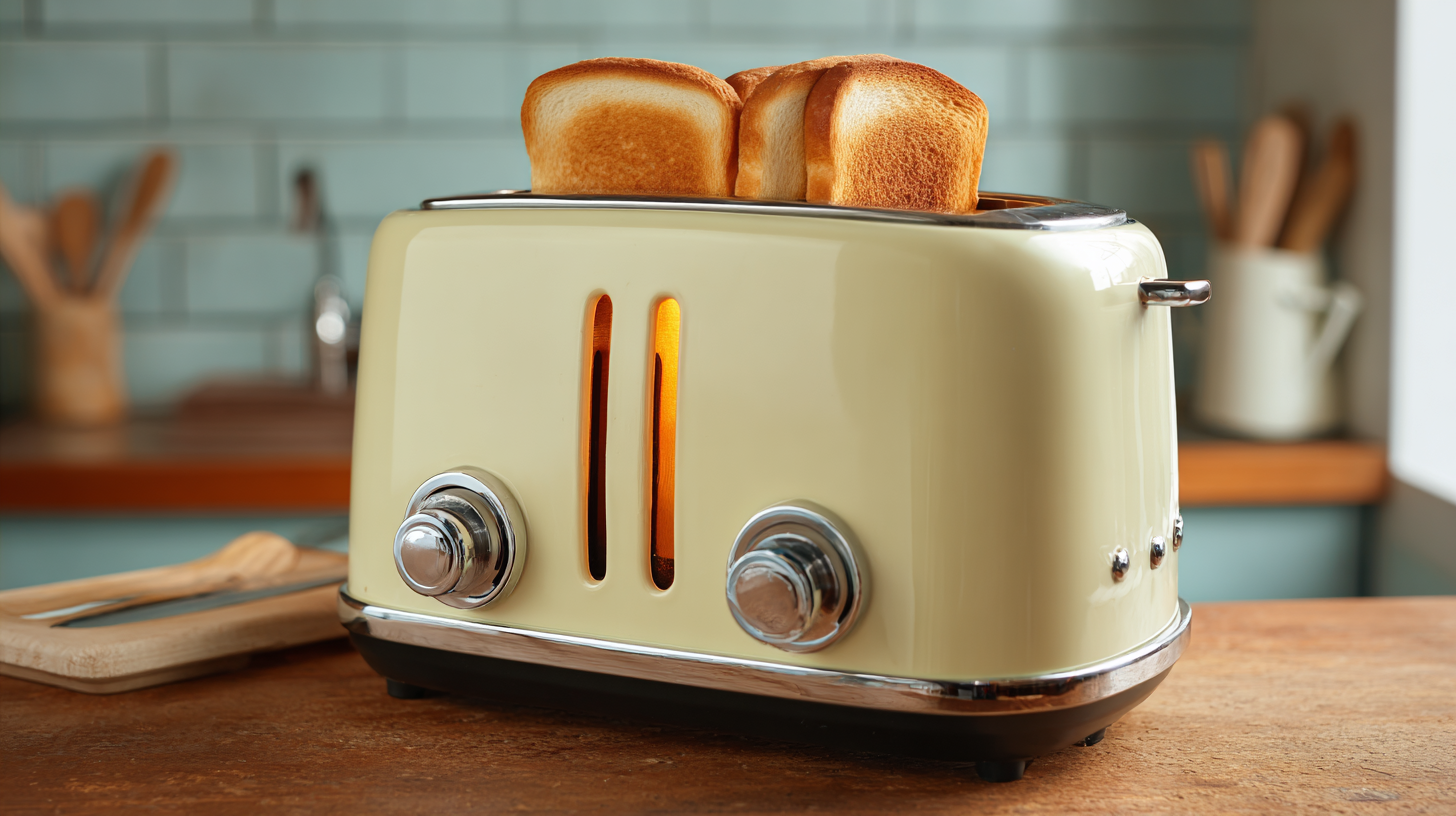- +86-13631182173
- sales@zsqeelin.com
- 8613631182173
As we look toward 2025, the landscape of kitchen appliances is evolving rapidly, particularly in the realm of electric toasters. Recent industry reports predict that the global electric toaster market will reach $5.56 billion by 2025, driven by increasing consumer demand for energy-efficient and multifunctional devices. Innovations in technology and design are shaping the future of electric toasters, with features such as smart connectivity and advanced browning controls becoming standard expectations among discerning customers. More than just a simple appliance, the modern electric toaster is incorporating health-conscious features, such as gluten-free toasting options and built-in timers, reflecting broader trends in consumer preferences.

With the implementation of stricter production standards and sustainability practices, the electric toaster industry is poised for significant transformation, ensuring that these everyday appliances continue to meet the needs of the future.
As we approach 2025, the electric toaster is set to undergo transformative changes driven by emerging technologies. Smart technology integration is leading the charge, with many modern toasters expected to feature Wi-Fi and Bluetooth connectivity. This allows users to control toasting preferences via mobile applications, enabling customization like never before.
Imagine being able to perfectly time your morning toast, or receiving notifications when your bread is ready—all from the comfort of your smartphone.

In addition, advancements in materials and design will play a crucial role in the evolution of electric toasters. The development of more efficient heating elements, such as induction technology, promises faster and more uniform toasting. Moreover, eco-friendly materials are becoming more prevalent, catering to the growing demand for sustainable home appliances. As manufacturers prioritize energy efficiency, we can anticipate toasters that not only deliver excellent performance but also minimize their environmental impact, setting a new standard for kitchen appliances in the near future.
As we look forward to 2025, sustainability is set to play a pivotal role in shaping the design and functionality of electric toasters. Eco-friendly innovations are taking center stage, as manufacturers increasingly prioritize the environment in their product development. From using recycled materials for housing to incorporating biodegradable components, the next generation of toasters will not only brown your bread but also contribute to a greener planet.
Moreover, energy efficiency is becoming a primary focus for designers. Toasters equipped with smart technology will optimize energy consumption, ensuring that users can achieve the perfect toast while minimizing electricity use. These units may feature sensors that detect bread type or adjust heat settings based on the moisture level of the bread, creating a tailored, eco-conscious toasting experience. As consumers become more environmentally aware, the demand for sustainable appliances will drive manufacturers to innovate and find solutions that blend functionality and ecological responsibility in seamless harmony.
As we look toward 2025, the electric toaster is undergoing a significant transformation driven by smart technology. The incorporation of connectivity features is set to redefine how we use this kitchen essential. Imagine a toaster that can communicate with your smartphone or smart home system. With dedicated apps, users will be able to monitor toast progress remotely, customize browning levels, and even receive notifications when breakfast is ready. This level of convenience allows for a more streamlined morning routine, as you can multitask while knowing precisely when to enjoy your perfectly toasted bread.
Automation advances are also playing a crucial role in enhancing the functionality of electric toasters. New models are expected to feature sensors that adjust cooking times based on the type and thickness of the bread. Smart toasters could learn your preferences over time, automatically adjusting settings to provide a consistently enjoyable toasted experience. Furthermore, the integration of voice assistant compatibility allows for hands-free operation, enabling users to control their toasters using simple voice commands. This blend of connectivity and automation is not just about luxury; it’s about creating a more efficient and user-friendly kitchen environment in the years to come.

As we look towards 2025, the design aesthetics of electric toasters are poised to undergo a significant transformation that reflects broader trends in home decor and consumer preferences. Modern toasters are expected to blend functionality with style, introducing sleek, minimalist designs that fit seamlessly into contemporary kitchens. The emphasis on clean lines and neutral color palettes allows these appliances to serve as both practical tools and decorative accents, a shift that parallels the growing trend of creating cohesive design narratives within home spaces.
The incorporation of innovative materials, such as brushed stainless steel and heat-resistant glass, adds depth to toaster designs. Brands are likely to experiment with colors beyond the traditional white and black, embracing more vibrant or matte finishes that appeal to a younger demographic. Additionally, customizable options may emerge, allowing consumers to personalize their toasters with interchangeable panels or unique color schemes, aligning the appliance more closely with individual tastes and lifestyles. This evolution in toaster aesthetics not only enhances the visual appeal but also reinforces the importance of kitchen appliances as integral components of home design.
As we look towards 2025, consumer preferences in the electric toaster market are evolving rapidly, influenced by technology, sustainability, and design aesthetics. According to a recent report by MarketResearchFuture, the electric appliance market is projected to grow at a CAGR of 4.5% through 2025, with toasters becoming a focal point of innovation. Buyers are increasingly prioritizing multifunctional gadgets that can not only toast bread but also reheat, defrost, and even grill, catering to the fast-paced lifestyle of modern consumers.
Sustainability is another critical factor shaping purchasing decisions. A study from Statista shows that 71% of consumers are willing to pay a premium for eco-friendly appliances. As a result, manufacturers are focusing on energy-efficient models that minimize electricity consumption without sacrificing performance. Furthermore, the choice of materials is increasingly important, with many buyers looking for toasters made from recyclable materials that reduce their carbon footprint. This trend towards eco-consciousness is expected to drive significant market shifts in 2025, pushing brands to innovate while aligning with environmental values that resonate with today’s consumers.
